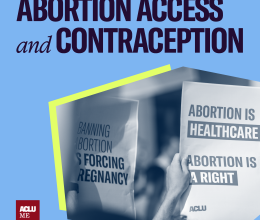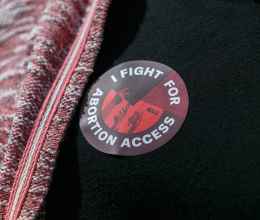On Tuesday, November 26, 2013, Marlise Munoz suffered a pulmonary embolism that left her unconscious. She collapsed on the living room floor and was found by her husband Erick Munoz around 2am. When emergency vehicles transported Marlise to John Peter Smith hospital in Fort Worth, Texas, doctors found that she had sustained massive brain swelling. That was over four weeks ago. Marlise has yet to gain consciousness; her bodily functions are being sustained by life support. Erick would very much like to take his wife off of life support and allow her to die peacefully. This, he says, would be her wish. Erick and his wife, both paramedics, had spent a lot of time talking about end-of-life decisions. According to Erick, Marlise never wanted to be kept alive by the aid of machines. Erick would like to honor her wishes. The decision is agonizing for him, but he knows that she wouldn’t want to exist this way – “simply a shell,” hooked up to machines to keep her body alive. Unfortunately, although Erick and Marlise spent time talking about end-of-life choices, neither of them had actually signed a Do Not Resuscitate (DNR) form. While the lack of DNR form is unfortunate, it is ultimately irrelevant due to one important detail: Marlise was 14 weeks pregnant when she was connected to life support.
In Texas DNR cases, the rights of the fetus supersede the rights of the mother. If a mother is carrying a fetus with a detectable heartbeat and she suffers from a traumatic event that leaves her brain dead and on life support, state law forces her to keep stay connected to life support until the fetus reaches viability. Texas Health and Safety Code 166.049 states that, “A person may not withdraw or withhold life-sustaining treatment under this subchapter from a pregnant patient.” Marlise's situation wouldn't be any different if she had signed a DNR form – this far-reaching law overrides any end-of-life directives. When signing the DNR form, women must consent to a provision that states: “I understand under Texas law this Directive has no effect if I have been diagnosed as pregnant.” For Erick Munoz and Marlise’s family, this means that they must postpone their grieving for the sake of a fetus that may or may not be able to survive. Tests currently indicate that the fetus has a heartbeat, but doctors won’t know more about the health of the fetus until it reaches viability at 24-28 weeks. At that point, doctors will be able to perform a cesarean section and they’ll be able to see what affects nutrient and oxygen deprivation have had on the fetus. That’s over a month from now.
Marlise’s family shouldn’t have to spend months waiting to grieve for their loved one. Marlise’s parents, Lynne and Ernest Machado, are exhausted by this whole ordeal. The amount of energy it takes to walk into the ICU, “knowing [their] daughter is not there, but her body is being kept alive,” leaves them too tired to even imagine a legal battle. For Ernest, this situation with his daughter “isn’t about pro-life or pro-choice” it’s about saying goodbye. “All we want is to let her rest, to let her go to sleep. What they’re doing serves no purpose,” he stated in a tearful interview. Erick Munoz has stated very clearly that he disagrees with the state law. He’s also stated very clearly that, right now, he’s not interested in initiating a legal battle to have his wife removed from life support. If Erick wanted to pursue this option, he would have to convince judge to grant an injunction or a restraining order.
Laws like those that exist in Texas undermine women's and families' abilities to make personal and private decisions. This particular law confers rights upon the fetus that override the mother’s desires. When laws like this are coupled with “personhood” legislation (like Texas’s HB2), it becomes impossible for people like Erick to honor the wishes of their partners. Anti-choice legislation like this assumes that all women’s experiences, needs, and motives are the same. It doesn’t make allowances for different life situations. It’s true that we all have very differing views on abortion, and this means that we have different ideas about when life begins. But hopefully, we can agree that a woman’s personal health care decisions are up to her, her family and her doctor - not the legislature. Everyone’s life circumstances are different; we should respect people’s personal choices even if we wouldn’t make the same decision.









